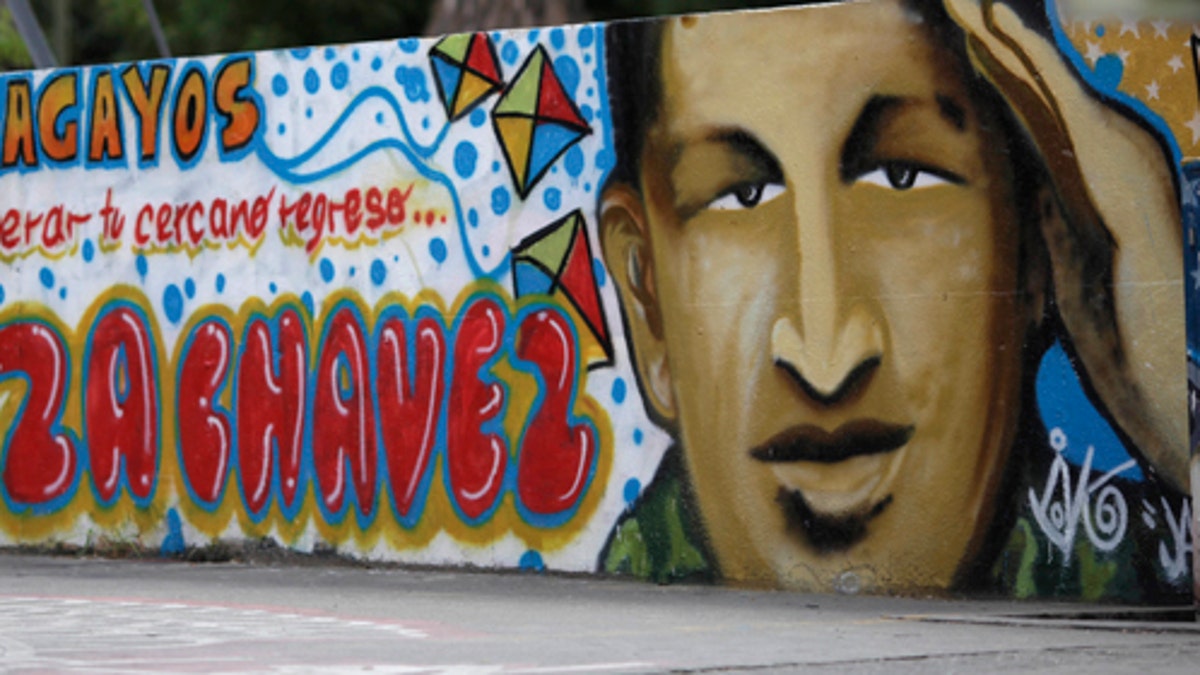
Venezuela celebrated the birthday of the country’s late President Hugo Chávez by setting up an institute to spread the deceased socialist leader’s ideas and political message.
President Nicolás Maduro, who says he is the political “son” of Chávez and claims his ideological mentor speaks to him in the form of a bird, signed a decree to open the doors of the "Institute for the Advanced Studies of the Thinking of the Supreme Commander Hugo Rafael Chávez Frías," The Wall Street Journal reported.
More of a think tank than an actual university or scholarly center, the Chávez institute will be chaired by his brother Adán and based in Chávez’s home state of Barinas.
Chávez "created a group of ideas that have impacted not only Venezuela but the entire region and world," Nicmer Evans, a political science professor at the Central University of Venezuela in Caracas told the Journal . "He was more than a president, he created a movement."
The feisty Venezuelan leader died in March after a lengthy and veiled battle with cancer. Recently, Ecuadorean President Rafael Correa – a close ally of the left-leaning former leader – said he was privy to the seriousness of Chávez’s condition before his last surgery.
"I was told (by Cuban leader Fidel Castro) that the issue (President Hugo Chávez's health condition) was very serious and that he had a few months left. That is why we had to prepare emotionally for such a terrible blow," Correa said, according to the Venezuelan newspaper El Universal.
Chávez was adored by the country’s poor and working class for his social and economic reforms while despised by businessmen, opposition media and U.S.-friendly Venezuelans for his nationalization reforms, the dramatic rise in violent crime rates and a censoring of the media, among other things.
“You either love him or you hate him,” said Chris Sabatini, the senior policy director at the Americas Society/Council of the Americas, a nonprofit think tank in New York City. “He’s become a national obsession.”
Under Chávez, Venezuela set up more than 100,000 state-owned cooperatives, created “Bolivarian Missions” to provide medical, educational and other social welfare programs to poorer Venezuelans as well as increased state spending in a number of government programs aimed at curbing the private sector.
The increase in social spending is one thing that kept Chávez in power for over a decade and built a base of poor and working class voters who became devoted “Chavistas,” or die-hard followers. It did, however, also alienate many in the country’s conservative business class, who viewed the nationalization of private sector businesses and widespread social programs as a drain on the economy and a swift march toward a new Cuba.
Critics also railed against the country’s skyrocketing violent crime rate and widespread corruption in the government.
Follow us on twitter.com/foxnewslatino
Like us at facebook.com/foxnewslatino
